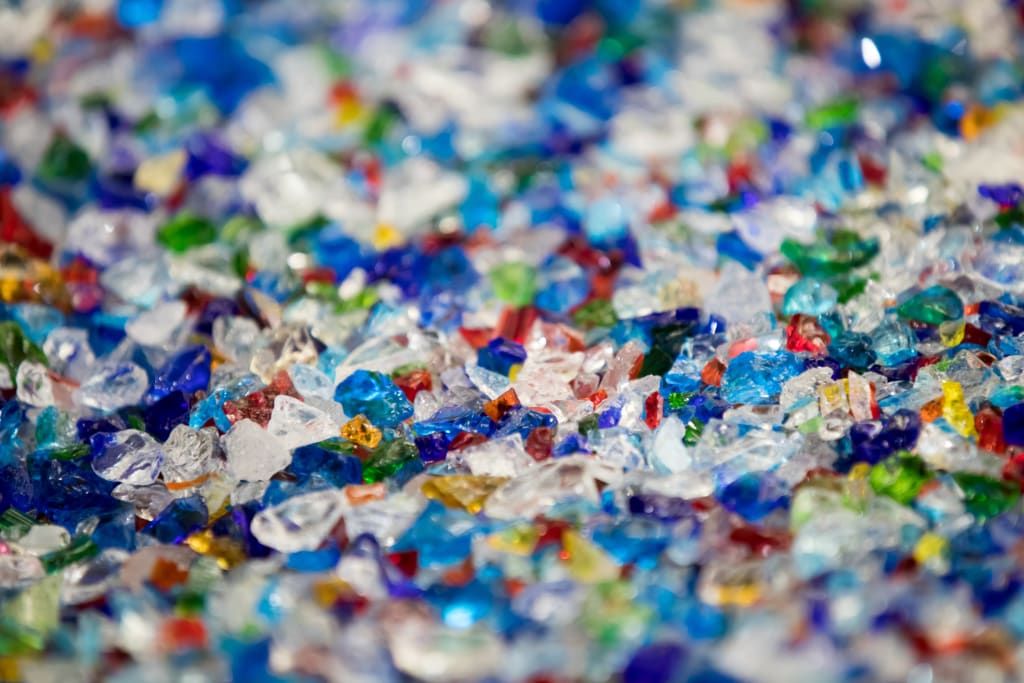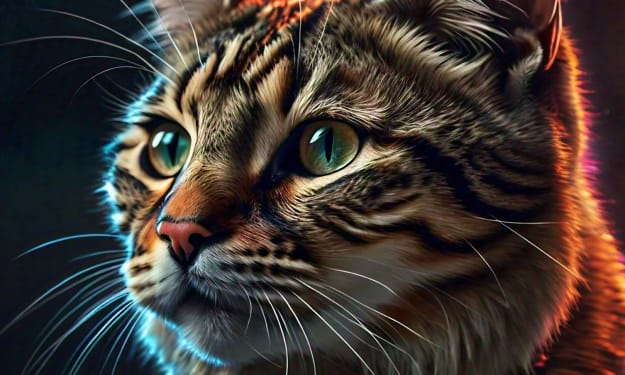Broken Glass
A Memoir of Lost Pieces

I tell myself I will get through this. Millions before me have survived the experiment that is High School. Whether they survived undamaged is another story. If I walk the halls looking like a normal pubescent, no one will know who I am.
I will go home to my room and pretend to sulk. Mom can blame my adolescence; Dad won’t even notice. I can pretend that doesn’t bother me by looking down at my Converse as teenagers squeeze by me in E Hall. The school is too small for its occupants, but not for their brains.
My physics teacher, Mr. Johnson, writes Greek on the board, and the rest of the class pretends to understand. If you ask him a question, he can answer it in ten different confusing ways. I know. I’ve tried. I think to myself that I’ll just switch to Astronomy-for-Losers next semester to finish my science credit.
Another Mormon girl sits by me in physics. She is nice; she tries harder than I do. She always talks to me like I believe and practice the same asinine thing we were born into.
I nod and smile like I’m one of them--like her. I don’t know my religion or if there is one yet.
The bell rings and I shuffle on. Lunch is the same. My drama friends are trading their shoes between themselves because they think it’s amusing. I’m more disgusted with my lunch than anything. I never could get used to the food here. Four years away from home and I’m beginning to look gray too.
This culture sucks the life out of you with its individuality-oriented pretenses while manufacturing products to make us all the same in different ways. The food tastes that way too. My friends think I’m anorexic--I just don’t enjoy eating here. They look at each other with their knowing glances when they see my unfinished cafeteria chicken sandwich. It tasted gross.
The day goes like cardboard: dull and square. It’s disintegrating in my mouth. When I get home, I imagine my Dad is not comatose on the couch as I walk to the kitchen for snacks. I’m always craving something, but when I get to the kitchen, I realize that there's nothing that I want.
The T.V. is on. It’s sycophantic and obnoxious. Even though Dad is glazed on the couch, I don’t dare turn it off. He’ll wake up, and his pills will yell at me, bottles scattered around him like plastic flowers around a corpse in a graveyard.
I’m sick of them. But I have flowers of my own too. I finish the food I didn’t want, and retreat to my lone room of the three empty ones upstairs. Mom and Dad’s is still packed. Sam’s left hers half full. Mine feels empty.
Mom and Dad don’t sleep up there anymore. Ever since Dad fell backward down the 27 steps, weighed down with his plastic flowers, he's not allowed to touch them. I remember how his Gatorade splattered around him from his cup as he tumbled down. I screamed as he landed on his neck, his Gatorade splattered around him. It looked like blood. I thought he was dead.
I nearly threw up in grief-terror and guilty relief. I’m glad he can't climb them. He can’t reach me up here. Up here, he’s nothing. Down there, he’s a prescription bottle on the couch. He is not my father. His name is Oxycodone Valium Morphine. He’s the shame I walk my friends past.
One time he was so fed up with my not sleeping, he gave me Valium to shut me up. It took two.
I can’t sleep. He’s lying on the couch, still watching television.
I stare at him through the iron railing of the banister down below, like some freak show zoo. The light of it makes patterns in stripes on the walkway. I decide not to reveal myself to him; he’ll just get mad that I’m awake and yell. My head hurts.
I tiptoe back to my fortified room and close the door, turning on the air-ionizer to block it out: the TV. It’s a person like him. It shouts so loud. Mom says she’ll take a bat to its shining 71 inches someday. I don’t believe her. She also says he’ll get better.
I fell asleep. Somehow. But, I didn’t sleep long enough. The first thing I hear is yelling. Dad. There’s a dart in my heart: old fear. I know he can’t come upstairs and drag me down by the neck like he would if he were healthy. So I go down.
The first thing I see is Mom. She’s crying softly over green glass. It’s scattered all over the peach-tile floor. The image is searing itself in my memory.
Dad is yelling at us both to clean up the mess. It’s my fault. Take care of your mother.
I get down on my knees to clean up the pieces, to help Mom pick up all the little bits of what now seem to be a shattered life. Not shattered green San Pellegrino bottles. That’s not what Mom is crying over. She is crying because of life and its cruelty.
Those glass bottles are our life, scattered across the ground, their contents spilling onto the cold floor, wasted.
Mom is washing the floor with her tears. It’s the first time she’s ever cried like this about broken glass. Not even that beautiful ceramic horse that fell off the wall ledge in Phoenix. Or her favorite things that we sometimes broke as kids. It twists my heart, wrenches, and tears it into little shards like the ones on the floor to see her crying like this.
There will always be some shards of glass lying around in the deep and dark corners of the kitchen. There will always be the bits of my life that lie in the dark recesses of my mind, cutting me every time I venture upon them--those memories that make me cry or feel some powerful emotion that I had forgotten. Those memories that ruined my life. The ones I don’t want to remember. Like Dad ingesting his prescription flowers. Like the sleepover at Brittany's. Or like my cousin Johnny ending his misery with gunpowder metal, but beginning others’.
I’m gone now. My brain is exploding with memory and feeling-colors. They spiral me away.
Sometimes the happy ones hurt more. The bright colors of glass that cut into your soul. The fields of your home country, the place of your youth where the grass was tall and green--and the meadow flowers vibrant and fresh: alive. Poppies lined the edges of the road as you walked them. You jumped the chain-link fence to pick the flowers in the orchard by the house and run far away.
But your memories are so old those flowers are dead now. So is the happiness that accompanied them. Oh, but you can still return to them, that cozy room in your mind where those flowers are still bright and delicate, and the trees still have the leaves--where Mom doesn't have any lines on her face or gray in her hair, when you didn’t have a care in the world and you still saw the world with Bette-Davis eyes: wide-open-daring.
But that’s not true. In that meadow-memory Dad beat that Russian-blue cat, and in the birch tree memory he strangled your youth. It was the best it would ever be.
That was before you knew what deeper glass shards life had in mind for you to step on. Those ones stuck. The spike belts and hoodies don’t protect you in school and now your feet are too damaged to be healed. There were too many bits of glass, and they were too sharp.
They feel your strangeness in the hallways, your inner deformity; because instead of developing calluses or rough patches of skin, your feet remained soft and raw. They will follow you the rest of your life, those raw patches on your soles, in the form of blood-red footprints, your own life-blood, Johnny's, and the blood of those you love staining your life under your flat feet.
There will always be the blemish of those flat crimson footprints when you look behind. And there will always be only one pair of footprints. Because when it comes to those patches of glass splinters, the bright ones, the dark ones, the dull ones, you're on your own.
Your sisters won’t save you, or even Mom; you have spent your life saving them all silently.
All this flashes in my mind in a million milliseconds as I crawl on my bony, malformed knees on the ugly peach squares sweeping, sweeping lost pieces. The small fragments cut into my palms. Mom cries, her snot dripping into the fractures as Dad changes the channel. I reach and kiss Mother’s cheek in a salty kiss. We look at each other. It’s just us.
Image Courtesy of: Photo 109827799 © Sarun Ongvanich | Dreamstime.com
About the Creator
Vivian Clarke
Third-culture-kid-now-adult with a melancholic disposition trying to make sense of life, like anyone else.
I live for my daughter, cats, and coffee.






Comments
There are no comments for this story
Be the first to respond and start the conversation.